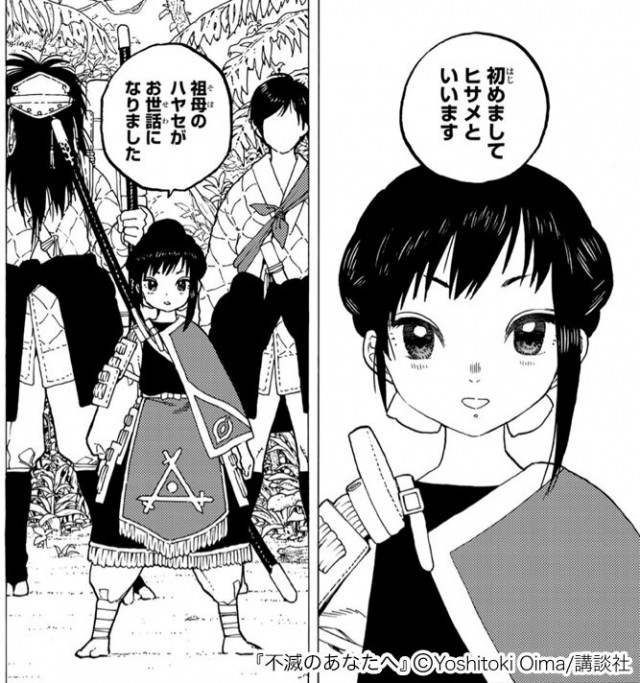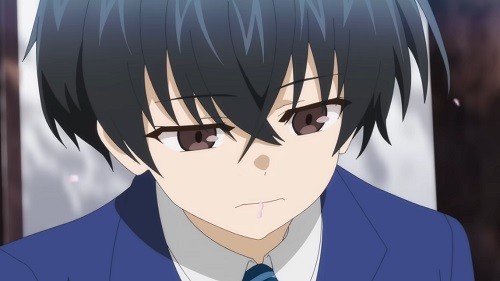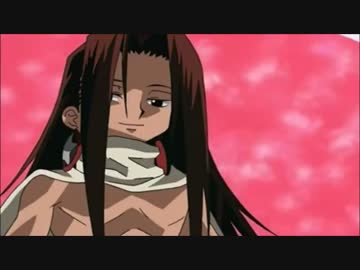The original work is a Sengoku period battle manga by Yasuhisa Hara. It began serialization in Weekly Young Jump in 2006, with the first anime season airing in 2012, the second in 2013, and the third in 2020. A PlayStation Portable game was released in 2010, and a live-action film was released in 2019, making it a popular work that has been adapted into various media. The story is set in China during the Spring and Autumn Warring States period. The protagonist, Shin, a war orphan, and Sei, who would later become the first emperor of the Qin dynasty, strive to achieve something no one has ever accomplished before: unify China. While the story is based on historical facts, the personalities and appearances of the characters, as well as the war situations of various countries, have been adapted to make the manga easier to follow and more interesting. So, how have the characters and events in Kingdom been changed? This time, we'll explain these changes based on historical facts.
The kind and honest Sei was a tyrant in real life?!
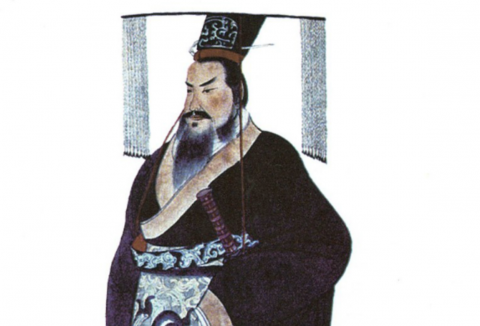
Born in Zhao and enduring a harsh childhood, Sei ascended to the throne of Qin with the goal of unifying China. As a king, he was known for his level-headed judgment and generally kind to the people and his subordinates, but historical facts are different. He was apparently a tyrant who never forgave mistakes and showed no mercy to those who betrayed him. After Kanki's defeat at Li Mu in the battle against Zhao, Sei demoted Kanki to the status of a commoner. Such treatment for a military commander who had contributed so much to the Qin state, after just one mistake... It's hard to imagine this from Sei in the story, right? Furthermore, he became close friends with Dan, the crown prince of Yan, due to their similar childhood experiences, but in the story, Zheng is described as having had a lonely childhood, so this is also different. After returning to Yan, Dan travels to Qin as an envoy. Although Dan was looking forward to reuniting with Zheng, Zheng treated her coldly. This incident led to Yan asking Jing Ke to assassinate Zheng. Since it would be difficult to create an episode in which Zheng is treated coldly in the story, perhaps they chose to eliminate the encounter with Dan altogether. The most notable incident that marks Zheng as a tyrant is the "burning of books and burying of scholars," also described in the Records of the Grand Historian. After becoming the First Emperor, Zheng burned all books except those on medicine, divination, and agriculture, and buried alive all Confucian scholars who disagreed with him. In this way, he prevented new ideas from emerging and sought to take all of China into his own hands.
Relationship with Shin
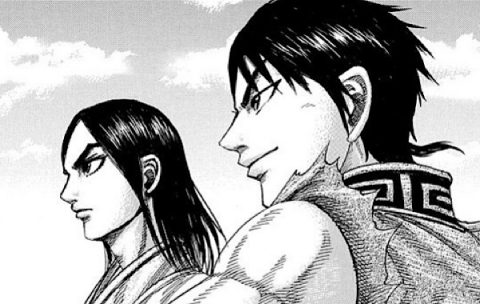
Sei and Shin met after Piao's death, but historically, it's unclear when they actually met. Since he was part of a separate force when Wang Jian attacked Zhao, it's safe to say he had become a general of the Qin state before then. Shin spoke to Sei in a casual manner, not behaving like a king. It's hard to imagine that the tyrant would forgive this. In reality, they rarely met and spoke, and when they did, it was likely as if they were king and general. Therefore, it's unlikely they were close friends as depicted in the story. However, it's also true that Sei trusted and highly valued Shin. When Shin attacked the state of Chu, he underestimated Wang Jian's 600,000 soldiers, thinking that 200,000 would be enough, and suffered a major defeat, losing seven of his generals. Kanki was demoted for his one mistake, but despite this major blunder, Shin continued to fight as a general and make great achievements. His achievement of destroying the state of Yan, which was plotting to assassinate Masa, must have been quite significant.
The cute and powerful vice-commander of the Hi Shin Unit, Kyou Kai, reveals her true identity...
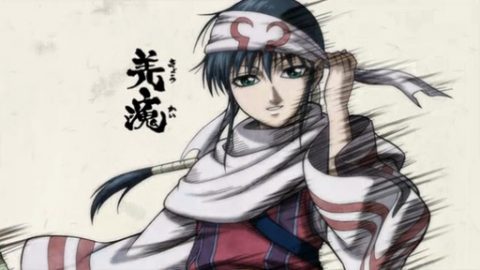
Kyou Kai, who overwhelms others with her superhuman swordsmanship known as "Shaman Dance," hides her true identity on the battlefield, but her true face is that of a very cute girl. However, in "Kingdom," she is actually a man, and is a descendant of Chiyou. While Chiyou is mentioned in historical fact, he is not a master assassin chosen through a "ritual" as in the story, but rather a legendary monster-like figure. Given that Chiyou is originally a monster, it makes sense that he's so strong. When Wang Jian marched to Zhao, he accompanied Yang Duanhe and destroyed Zhao, so his strength seems to be true to historical fact.
What about the other female characters?
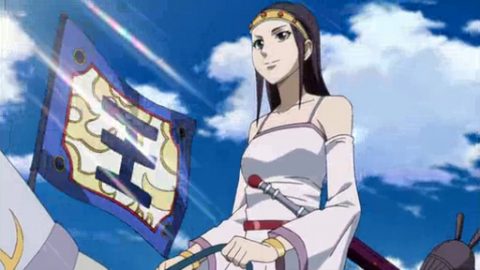
Now that Qiang Qi was actually a man, let's look at the other female characters. Yang Duanhe was also a man. He wasn't the king of the mountain people, but a general serving the Qin state. One of the Six Great Generals, Gang, was also a man. This means that the promise of marriage to Wang Qi must be an original episode. Furthermore, there is no mention of Karyo Ten or Kaine, so they are likely original characters to "Kingdom."
Ouki, feared as the "monster bird" of the Qin state, is barely mentioned in historical records...
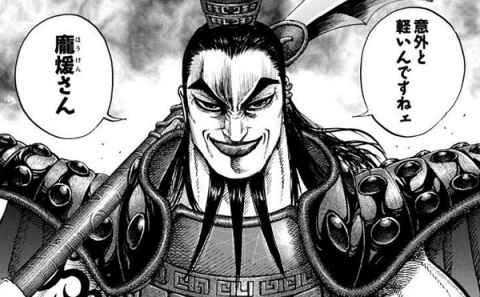
In the story, Ouki is the last surviving of the Six Great Generals, and all of China closely watched his movements, yet there are few historical records about him. Bai Qi, one of the Six Great Generals, defeated over a million soldiers, and his strength is well documented. It's even said that Bai Qi's contributions to the expansion of Qin's power were a major factor. As one of the Six Great Generals, it would be natural for records of Ou Ki to remain, but he didn't achieve much, and all we know is that he was appointed general after Sei ascended to the throne. By the time the Six Great Generals were wreaking havoc, Ou Ki wasn't even a general yet... a shocking revelation for Kingdom fans. Also, since he is said to have died in the third year of the reign of Emperor Qin Shi Huang, the story of his death by Hou Nuan is original to Kingdom.
Is it really different?! Comparing his history and personalities with historical facts! Summary
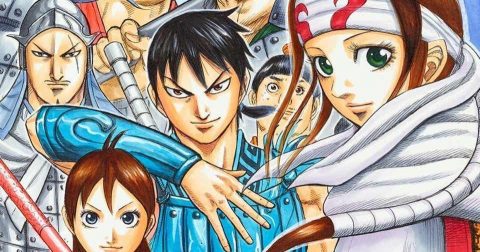
What did you think? While "Kingdom" is based on historical facts, it's clear that it contains a fair number of original elements. However, that's precisely why it's so interesting and popular! If it were told exactly as historical facts, the story would lack depth and readers would find it difficult to empathize. Knowing the historical facts, one way to enjoy it is to speculate on how "Kingdom" will portray them.


